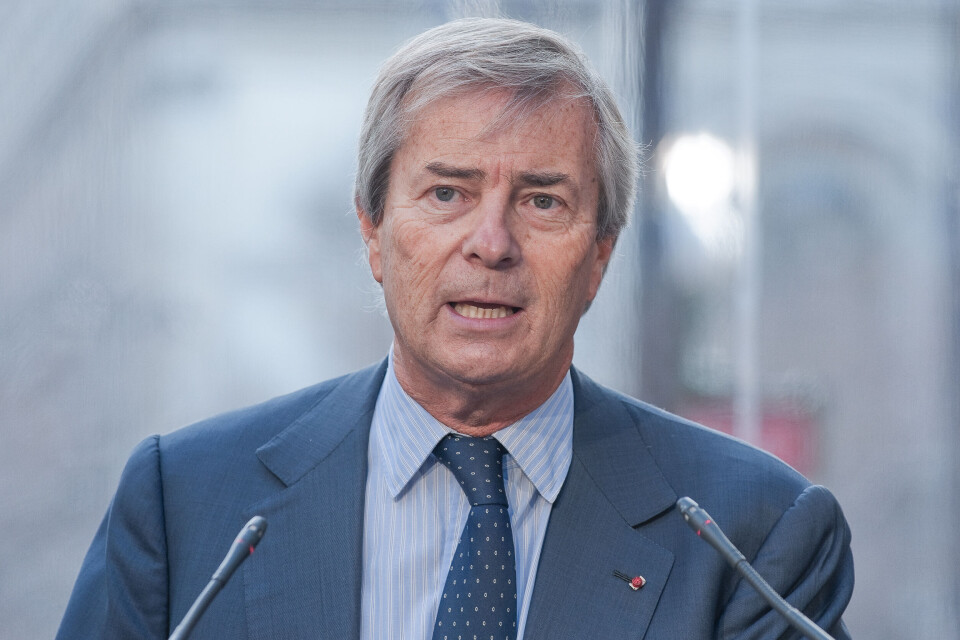-
La Voie Bleue: European Cycle Route of the Year is in France
700km bike path linking Luxembourg and Lyon has been crowned winner of the 2026 title
-
MAP: See how your location in France affects online food shop prices
New analysis shows how your shop compares on average
-
Further sightings of processionary caterpillars in France prompt action from local authorities
Caterpillars have arrived early after mild winter
Who owns France’s media and what are their political leanings?
Essentially, six billionaires and the French state control most of it. We break down here who they are, and the media they are affiliated with

Ownership of France’s media has gone through significant changes in the last decade – something which has become relevant as the presidential election approaches, with some candidates seeming to get better treatment than others.
The first round of voting for the election will take place on April 10 and the second, if required (if there is no outright winner in the first round), on April 24.
There has been a second round of votes in every election since the current election system was introduced in 1965.
Current President Emmanuel Macron is the favourite to win reelection (although he has not yet declared his candidacy). However, several other candidates could come out on top as his nearest challenger. These include politicians from across the political spectrum, including far-right and far-left candidates.
As always, the media will have an important role to play in shaping the narrative around the election.
Essentially, six billionaires and the French state control most of it. We break down here who they are, and the media they are affiliated with.
Right, free-market: The richest of the lot is Bernard Arnault, the head of LVMH luxury goods empire. His news stable includes Le Parisien, and Les Echos newspapers, Radio Classique and magazines Challenges and Sciences et Avenir (with Groupe Perdriel).
Centre right: Another big name is Martin Bouygues, who has made a fortune in civil engineering, internet and mobile phones. He owns nine television stations under the TF1 banner, including LCI news. He is currently trying to merge TFI and the M6 TV group.
Far right: His rival Vincent Bolloré already owns most of Canal+ pay TV stations through Vivendi, and has transformed the 24-hour news channel iTele into CNews – a sort of Fox TV for France.
A hardline Catholic, he is believed to be helping to fund the campaign of Eric Zemmour, a former journalist/pundit on CNews.
There is also an ongoing row at radio station Europe 1 after Bolloré wrested control from Lagardère group, getting rid of many journalists and replacing them with people seen as being right-wing.
Lagardère Groupe remains very influential through its publishing business, with Hachette Livre its flagship. How it will continue under Bolloré’s influence is a subject of much debate.
Right: Meanwhile, the Dassault family, famous for making jet fighters and computer-aided design software, owns Le Figaro and several magazines.
Centre left: Xavier Niel, founder of Free mobile phone / internet firm, took part of the controlling stake in Le Monde newspaper in 2010, and since then has invested heavily in regional newspapers and online news.
Centre right: Another telecoms billionaire, Patrick Drahi, who runs SFR, bought Libération (left leaving) newspaper and built a small media empire, which includes RMC radio station and BFMTV.
They are all likely to be interested in the forced sale by Vivendi of at least three of the 10 television channels in the TF1 and M6 bundle, with youth TV station Gulli, TFX and TF1 films all rumoured to be looking to see who will pay the most. Vivendi has to sell because the law says one owner cannot control more than seven TV frequencies.
All the privately owned companies have to fight for space against the state-owned TV and radio stations – financed by the €140 tax on anyone owning a TV set and, increasingly, by advertising.
Centre/neutral: The flagship TV channel is France2, in a daily battle for audience numbers with TF1, followed by regional TV channel France 3, France 5 and the Franco-German public TV Arte.
On the radio, France Inter, FranceInfo, France Culture and France Musique are all state-owned, and regularly top listening charts in their sectors.
The state also owns Agence France-Presse through a structure which guarantees the independence of the news agency, one of the most influential in the world.
Related articles
When will we know candidates for 2022 French presidential election?
Election poll sees Macron ahead 90 days from vote - but is often wrong
Tinder-style app matches user with ideal French presidential candidate
























